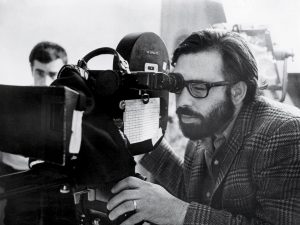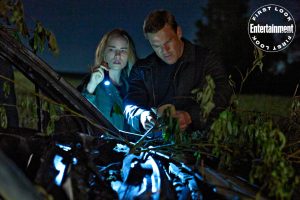
When one hears news of a Willy Wonka origin story, the immediate reaction might be knee-jerk negativity. In an era of endless IP mining, resulting in streams of sequels, prequels, and everything in between, Wonka seemed like it would just add to the murk. After all, can Gene Wilder‘s iconic performance as the madcap chocolatier ever be topped? Surely, the magic wouldn’t be there, and this adaptation ought to be stopped. Yet the faintest trickle of hope emerged with news of Paul King at the helm.
While not quite a perfect journey, director Paul King manages to bring the magic and justify the trip. 2023 has been a year of excellent Roald Dahl adaptations, with Wes Anderson‘s bevy of short films garnering high praise. The bar was high, yet King mostly leaps over it. After two great Paddington films, King has proven that his stylistic leanings infuse family films with color, thematic resonance, and heart, as well as a pinch of real darkness. These are all key ingredients to a Dahl work, and they are all on display in Wonka.
Timothee Chalamet stars as the titular chocolate man. One might worry that his casting is more the result of being an “it” guy in Hollywood right now, and that he wouldn’t really live up to Wilder’s legacy. While this does feel like a slightly different character, he does a mostly great job as Willy, managing to infuse some of the same madcap energy into the character without feeling like a caricature of the Wilder version. There are some annoying, cringey, prequel-y moments in the script, where later iconic Wonka lines are first said to him. It’s an unfortunate prequel trope that every moment and bit from the original has to have an “origin” and is assigned too much importance.
Luckily, Wonka has much more to it than that. Its script is quite strong outside of these embarrassing little moments. While not breaking any new ground, the film manages to give Willy an actual arc and personality. He’s a man pining to recapture a feeling from his childhood, when his mom made him something from the heart. He wants to spread that feeling to the world via his chocolates: magical creations full of flavors beyond anything in the real world. He connects with an orphan girl, Noodle, as both try to fill the hole in their hearts. The whole film has a storybook quality thanks to King’s set design and visual motifs. It is suitably colorful and bright, with several sequences throughout that manage to feel genuinely magical.
It also helps that Wonka has a real dose of reality to it. Wonka falls in with a group of essentially wash-house slaves upon his arrival in the unnamed European town, all of whom signed a contract (you gotta read the small print) that has bound them to pay off debt they accumulated trying to find a cheap place to stay. That premise alone evokes the harsh realities of working life. Add in that a chocolate cartel is actively trying to kill Willy, with the film being quite overt about it an amusing manner, and several scenes of true despair, and the movie actually feels quite weighty.
Amusingly for those with a libertarian mindset, the central thrust of the plot is about a corrupt police force that helps three wealthy businesses keep a competitor out of the marketplace, and about the joys that free-market competition provides by bringing in a cheaper alternate. While all done in a very twee way, like King’s other works, there is still some societal commentary here. The Catholic Church, ever a target, also sneaks in as a complicit entity, with Rowan Atkinson playing a bishop running a church full of chocolate-addicted monks. They conspire to aid the three main bad guys — one of whom is Slugworth, of course — in keeping Willy Wonka out.
And because the iconic film was a musical, Wonka is too. While none of the new songs are likely to have the staying power of the original numbers, they are clever and catchy. A particularly fun number sees the three cartel leaders convince Keegan-Michael Key‘s corrupt Chief of Police to continue taking bribes. Rendered in a showgirl style, this number is well-choreographed and quite amusing. As is the “Scrub Scrub” song, explaining to Willy how all the laundry workers wound up trapped under the thumb of the owner. That song continues to work its way into the score.
While most of the songs are new, the film does choose to bring back “Pure Imagination” in probably the most perfect way possible. It sharply runs away from the moment in the 1971 film by using the song in a very humanistic, plain moment that ends up a perfect capper for the film. It actually brought tears to my eyes, and one can’t help but think that it was this moment King had in mind when he first set out to write and direct a Wonka prequel.
Wonka is a movie with annoying flaws here and there. Hugh Grant‘s Oompa Loompa feels included out of pure obligation and is mostly extraneous to the events of the film, though Grant’s version of the famous song is funny. Aside from such warts, Wonka is a surprisingly poignant and, indeed, magical film that should be a big crowd-pleaser. With a great array of talented character actors, the film is funny and a feast for the eyes. It is a joyous viewing experience, perfect for the Christmas time of year.


